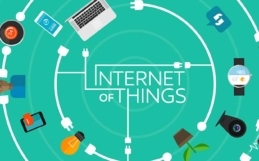Another cautionary tale from the cloud. Last Sunday afternoon Google accidentally deleted the Gmail folders of tens of thousands of users. Contact lists were mostly intact, but for most victims, years of saved correspondence was wiped out. Thankfully, they managed to restore most of the deleted mailboxes within a couple days. But imagine if your business correspondence was lost in the blink of an eye. Imagine if that happened and you didn’t even have a phone number to call to ask why, when, and how. Yikes.
As all things ‘cloud’ have dominated our industry the past couple years, and the battles between Microsoft and Google heat up, ITW has been cautioning our clients and colleagues to think very carefully about what they are willing to put ‘up there’ in the big public clouds.
Within hours of Google’s mass deletion, one user on the Google forums lamented this: “I logged in and my account also looks like a brand-new Gmail account! 10 years of emails (17000 of them) are gone.” Remember, there is no tech-support line to call if you are having problems with Gmail or Google Apps … your only hope is to wade through threads of user posts on their message boards looking for help. To me, that doesn’t make a lot of business sense.
Losing a decade’s worth of personal correspondence is tragic; memories, pictures, captured thoughts, love letters, and more. That is awful stuff. But again, imagine losing a decade’s worth of business correspondence … “tragic” doesn’t capture the sentiment; it’s more like catastrophic. Last week’s mass email deletion does nothing to instill business confidence in Google’s cloud-based apps … Even if they had most of their systems restored within a day or so. Today’s businesses move fast, and that kind of surprise downtime is dangerous.
Here’s another quote from the Google help forum, “What if the cloud fails? If, ultimately, Google does not make this right in a timely way and I lose the main record of the last 7 years of my life … that will forever affect how I view trusting an anonymous server farm somewhere with my critical or even not-so-critical data.”
Here’s another example to consider; one Gmail user posted this: “If I could have spoken to a GMAIL tech support I would have found out [what was happening] immediately. It’s very frustrating when a company does not provide telephone support.” Now to be fair, if you want technical support service from Google (which includes a phone number and support email address), it is available … at a cost. You need to set up premium accounts and pay annual fees per user. However, the support policies for Premium Google Apps and GMail accounts make no promises that their teams can/will resolve all your problems, and they only offer a ‘response target’ of one hour to one business day to merely acknowledge receipt of your support request. For a business owner, that isn’t much of an SLA.
I’ve been in this industry for over 20 years, and no matter how great your system is … shit happens. The true measure of a technology provider is how they mobilize, respond, and communicate during times of trouble and recovery. That is the REAL value you pay for when you set up an agreement with a service provider.
The lesson here is a familiar one … Be careful. While there is no doubt that the big public clouds are moving in the right direction, it is certainly not clear that they are fit to handle your business needs. If you are going to trust core elements of your business (email and connectivity) to a service provider, you need one that you can trust. You need a service provider that at least has someone you can talk to when something goes wrong.




